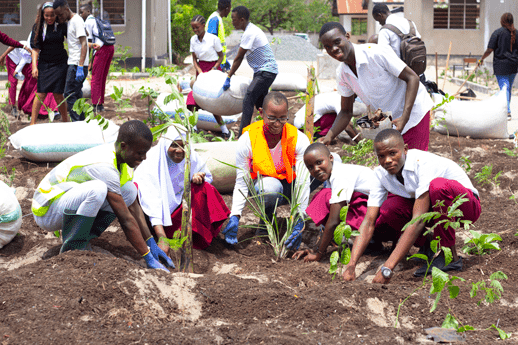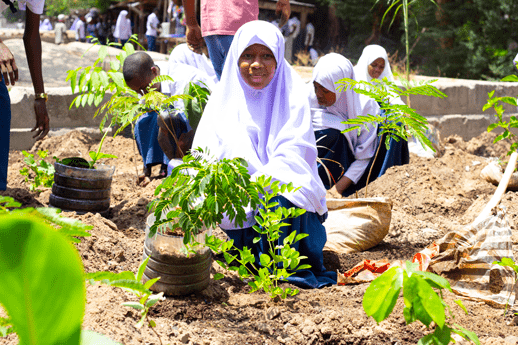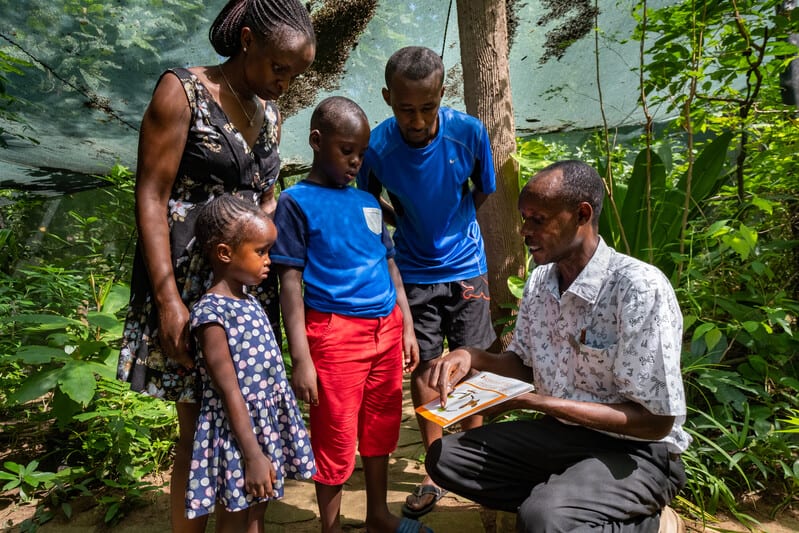Increasingly the global outlook for tackling the climate emergency sees education as the best possible means to secure a sustainable and green future. Thus, with COP27 taking place this week, the Aga Khan Foundation (AKF)’s Education Improvement Programme is leveraging its global portfolio to explore and expand the educational response to the climate crisis. This will be done through two key initiatives that operate at the school and systems level – Play, Pluralism and the Planet, and Teachers for the Planet – which will be officially launched in tandem at a side event at COP27 on 10th November.
At the school level, the pilot initiative Play, Pluralism and the Planet (PPP) will leverage Schools2030’s proven Three-Step Model (Assess, Innovate, Showcase) to catalyse new teacher-driven solutions for the climate. Funded by Dubai Cares and UNICEF, PPP was first announced at last year’s RewirEd Summit where it was acknowledged in the Provocations Award Ceremony. Almost a year on, through partnerships established earlier this year at the Schools2030 Global Forum and cemented at the recent Transforming Education Summit, it is now centring its operations in Tanzania and Zanzibar, which will provide a blueprint for the model going forward.

PPP represents AKF’s three-pronged approach to how we might better integrate climate literate, climate compassionate and climate resilient education into the curriculum. We know that education is more impactful and resonates more deeply with learners when it is playful, joyful and engaging – thus an emphasis on playful, classroom-based innovations and practices aim to ensure a new generation of climate literate young people, with teachers at the forefront of that approach. The inclusion of pluralism – a core value for AKF and the larger Aga Khan Development Network – represents our belief that a truly climate compassionate culture requires a more ethical embrace of difference among ourselves and in our relationships with one another. Finally, in support of global climate resilience, we must determine a system that sees these classroom practices – and the funding to scale them – reach the farthest and most remote corners of our planet, ensuring that the most marginalised and underserved communities are not left behind.
This rationale is why Schools2030 has become the vehicle to drive this programme forward, as within its Three-Step Model are the tools needed to assess the current state of climate education, to innovate play-based practices that are underpinned by an empathetic outlook and a respect for diversity, and to scale these practices across the world through platforms like the teacher-to-teacher sharing network, Faved.

Another facet of PPP is to create a new global alliance in policy and practice that can ensure a fluid school to systems link. Teachers for the Planet sets out a 12-month programme to bring together experts in education and create a new community of practice that can better co-create a climate-smart education ecosystem for all by COP28 in 2023, when it is held in the UAE. Teachers for the Planet was born out of the 17 Rooms Initiative, supported by the Rockefeller Foundation and Brookings, and in partnership with The Learning Planet Institute and Teach for All. The 12 month roadmap to COP28 is in support of the ambitious vision of the Global Partnership for Education, UNESCO and other education system leaders to help all children become climate-ready by 2030.
The Schools2030 teams are excited to be on the forefront of such important initiatives, that can establish a new methodology for climate education. Right now is a critical moment for our planet, and the importance of ensuring the next generation is better prepared for tackling this global crisis cannot be understated. With Schools2030’s operations set to expand into Zanzibar in the coming months, we look forward to reporting on how this model can make a real difference for sustainability and a greener future.
